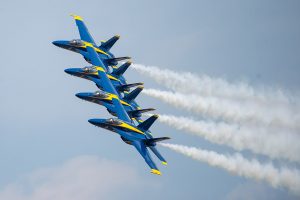Peachtree City resident and Navy Reservist Corey Malmer returned home this month from a year’s tour of duty along the Afghanistan-Pakistan border.
Malmer, an intelligence specialist, served on an embedded training team that helped train cohorts in the Afghan national army. Such work is considered crucial to the military strategy in the area as U.S. and coalition forces move towards the eventual goal of having the Afghan army, border patrol and national police trained well enough to take their country back with little if any outside aid.
Malmer, a 1989 graduate of McIntosh High School, said the Afghan forces his group worked with “were really good.”
“If we wouldn’t hold them back, they would run up the mountain and chase these guys down,” Malmer said.
The Afghan troops Malmer worked with also were adept at doing whatever was necessary, Malmer said.
Malmer also interfaced with another group of Afghan and coalition forces when he was tapped to help defend an observation post that was threatened by insurgents.
“Most of them were pretty good,” Malmer said. “They might not have been very accurate, but they got up and they weren’t afraid. We even had interpreters … who would pick up weapons and shoot back.”
Malmer was also very complimentary of the Afghan colonel in the unit his group interfaced with, along with “a couple of other guys who were really intelligent and really good leaders.”
“The intel major I was mentoring and his staff were pretty smart too. They were catching on pretty quick,” Malmer said.
But the Afghans also work at their own pace, which can be frustratingly slow at times compared to the pace of the American military, Malmer said. But because his role was to train Afghan forces and not order them, Malmer was not required to force them to operate at a more swift pace.
The observation post incident had Malmer jump eight feet out of a hovering helicopter to reach the post, which was 8,000 feet high on a mountain. There for a week, they took insurgent fire six of the seven days overnight.
They took fire that week from rocket propelled grenades, AK-47s and another large caliber automatic weapon, Malmer said. The firefights resulted in the deaths of two Latvian soldiers and a couple of coalition soldiers also, Malmer said.
Malmer also saw plenty of action near the end of his tour as he manned a turret gun, but he only had a few close calls.
“Couple of zips over my head,” Malmer recalled.
Some of the missions run by Malmer’s unit were of the intelligence gathering variety. They would plan a humanitarian assistance mission, bringing school supplies such as crayons, pens, whatever was on hand. And there would also be medical staff on hand to help villagers, Malmer said.
The area around Malmer’s base in Nangarhar had a lot of narcotics trafficking, which serves as the insurgency’s primary funding source, he noted. Nangarhar is about 80 miles from Kabul but it can take upwards of four hours to get there on a mission because of terrain, traffic and other issues, Malmer said.
Except for the areas near Kabul, most all of Afghanistan remains incredibly rural and not caught up with technology at all, Malmer said.
“There’s really still no infrastructure over there. You roll through towns where people are still in the dark ages. Garbage and sewer in the streets. Living in dirt buildings … the people in all these other provinces still live the way they have the last thousands of years.”
Malmer volunteered for the assignment when it was presented to him and looked forward to early deployment in part because he wanted to be home for 17-year-old daughter Chelsea’s senior year at McIntosh. He was also anxious to see Afghanistan.
“I wanted to go to Afghanistan and see what one of my friends called ‘the wild wild west,’ and it really is,” Malmer said.
With wife Regina and Chelsea at home, Malmer brought a laptop overseas hoping to see his family via webcam. But on his tiny base there was no Internet service. Instead he purchased an Afghan cellphone, which worked out quite well, Malmer said.
While he missed Chelsea’s birthday and the death of his grandfather, Malmer said he was glad to have gotten his tour over early.
But in a way, one can tell he sort of misses his home base in Afghanistan.
“I enjoyed it. It was a good experience. I’m thankful nothing bad happened. My wife said, ‘Just be sure you come back with all your parts.’”
Now, back in one piece, he just has to figure out what’s next. When he left for the tour, his civilian job was as the general manager of a corporate catering company. Malmer hopes he can hook on with Central Command for a future job.
As far as Afghanistan’s future is concerned, Malmer thinks it’s brighter because more troops will be sent.
He also likes Gen. Stanley McChrystal’s plan to concentrate forces on the larger populated areas of Afghanistan “to kind of get them on our side.”
Malmer noted that counterinsurgency forces were getting much information not just from people on the ground but also unmanned aerial vehicles.











Leave a Comment
You must be logged in to post a comment.